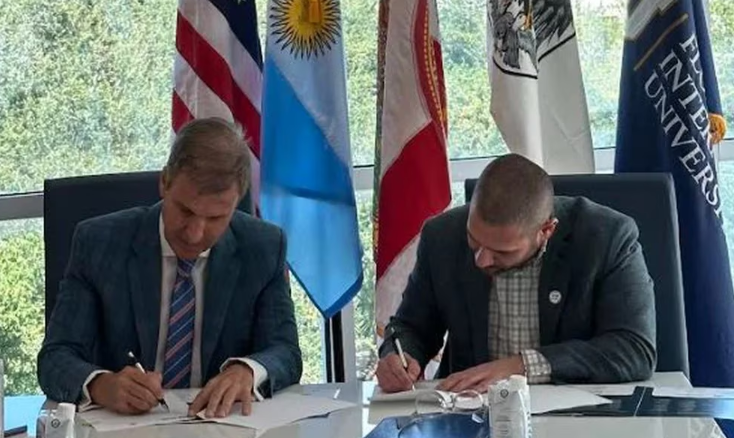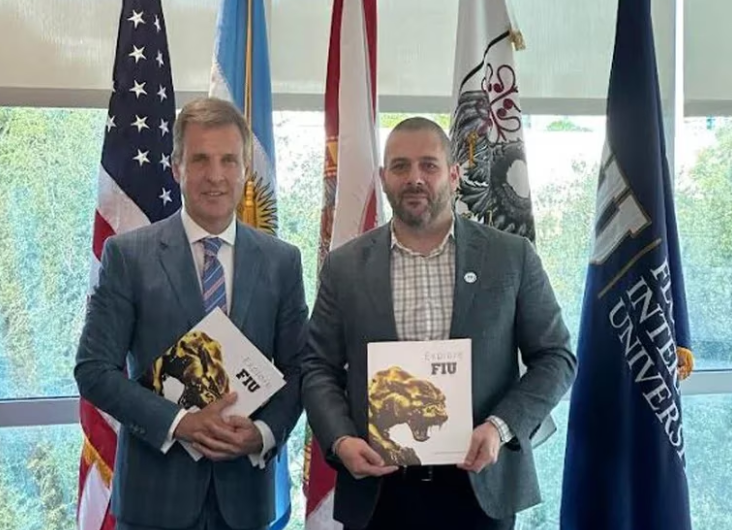
Argentina: Buenos Aires Signs Agreement to Develop Electromobility Initiatives

The government of the City of Buenos Aires, Argentina and Florida International University (FIU) signed an agreement aimed at developing solutions in cybersecurity, electromobility, digitalization in the management of the State, and even the monitoring of mental health conditions of the population.
This was stated by officials from both organizations who participated in the signing ceremony, held last Wednesday, October 18, at the FIU headquarters, located in Miami.
According to Infobae, the representative of the Buenos Aires government was Martín Redrado, CABA’s Secretary of Strategic Affairs, and the signing took place at the Steven J. Green School of Public and International Affairs.
The commitment was promoted and worked on by the Latin American and Caribbean Center “Kimberly Green” (LACC) and the officials of the area led by Redrado in the Buenos Aires government.

Vision of Improvement
Redrado pointed out that the agreement is a mutual recognition between the City of Buenos Aires and FIU of the capabilities they have to develop specific solutions that seek to increase the standard of living of citizens.
Both institutions committed to carry out collaborative activities, which aim to think of projects and advance in solutions to the problems identified in the areas indicated.
These initiatives focus on public safety and governance, public health, climate change, energy and transportation, natural disaster management and cybersecurity.
Read also: Presenting a Plan to Improve Mobility in the State of Mexico
FIU members and CABA government officials, based on this agreement, are committed to investigate specific city scenarios.
Consequently, the presence in Buenos Aires of researchers from the Florida house of higher studies is foreseen and, in turn, the trips of Buenos Aires officials to Miami, in the framework of the implementation of the aforementioned projects.
“Now it is up to FIU professors and Buenos Aires officials to take advantage of the opportunities created by this agreement,” said Green School, Dean Shlomi Dinar.
Broadly speaking, the approach aims to reduce dependence on fossil fuels and mitigate the environmental footprint by using electric batteries or fuel cells to power cars, trucks and other means of transportation.





